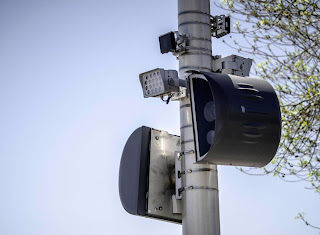In a growing trend across the United States, several cities and utility companies are implementing policies that allow them to shut off essential services, such as water, electricity, and gas, for individuals who fail to pay fines related to traffic violations, including red light and speed camera tickets. This controversial practice raises important questions about the balance between enforcing traffic laws and ensuring access to essential services. Here’s what you need to know about these policies and their implications for offenders.
Why Are Utilities Shut Off for Unpaid Offenders?
The rationale behind shutting off utilities for unpaid offenders centers on several key factors:
-
Revenue Generation: Municipalities often face budget constraints, and unpaid fines can significantly impact their financial health. Shutting off utilities serves as a method to collect outstanding debts.
-
Encouraging Compliance: By threatening essential services, cities hope to encourage offenders to pay their fines promptly and deter future violations. The idea is that the potential loss of utilities will motivate individuals to fulfill their financial obligations.
-
Addressing Public Safety: Some argue that ensuring compliance with traffic laws through stricter penalties, including utility shutoffs, enhances overall public safety. The rationale is that enforcing consequences for violations can lead to more responsible driving behavior.
The Controversy Surrounding Utility Shutoffs
While the policies may be intended to improve compliance and generate revenue, they are not without controversy. Key concerns include:
-
Impact on Vulnerable Populations: Shutting off utilities can disproportionately affect low-income individuals and families who may already be struggling to make ends meet. Losing access to water or electricity can create significant hardships, including health and safety risks.
-
Legal and Ethical Questions: Critics argue that punishing individuals for unpaid fines by cutting off essential services raises ethical questions. Is it fair to deny basic necessities as a means of enforcing traffic laws? Additionally, legal challenges may arise regarding the legality of such practices.
-
Ineffective Deterrence: Some studies suggest that harsh penalties, such as utility shutoffs, may not effectively deter future violations. Offenders might simply accumulate more debt rather than changing their behavior.
What Offenders Should Know
If you are facing unpaid fines that could lead to utility shutoffs, here are some steps to consider:
-
Address the Fines Promptly: If you receive a ticket, it’s crucial to address it as soon as possible. Ignoring the issue can lead to increased fines, additional penalties, and potential utility shutoffs.
-
Explore Payment Plans: Many jurisdictions offer payment plans or hardship programs for individuals struggling to pay fines. Contact the issuing authority to discuss your options.
-
Stay Informed About Local Policies: Keep abreast of local policies regarding unpaid fines and utility shutoffs. This will help you understand your rights and responsibilities.
-
Seek Legal Advice: If you believe that a utility shutoff is unfair or unlawful, consider consulting a legal expert. They can help you navigate the legal landscape and explore options for contesting fines or avoiding utility shutoffs.
Conclusion
The practice of shutting off utilities for unpaid traffic violations is a growing trend that raises important questions about fairness, legality, and public safety. While municipalities seek to enforce compliance and generate revenue, it’s crucial to consider the implications for vulnerable populations and the potential ineffectiveness of such measures. For individuals facing unpaid fines, addressing the issue promptly and exploring available options can help prevent severe consequences, including utility shutoff.




